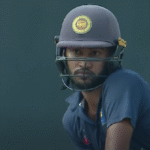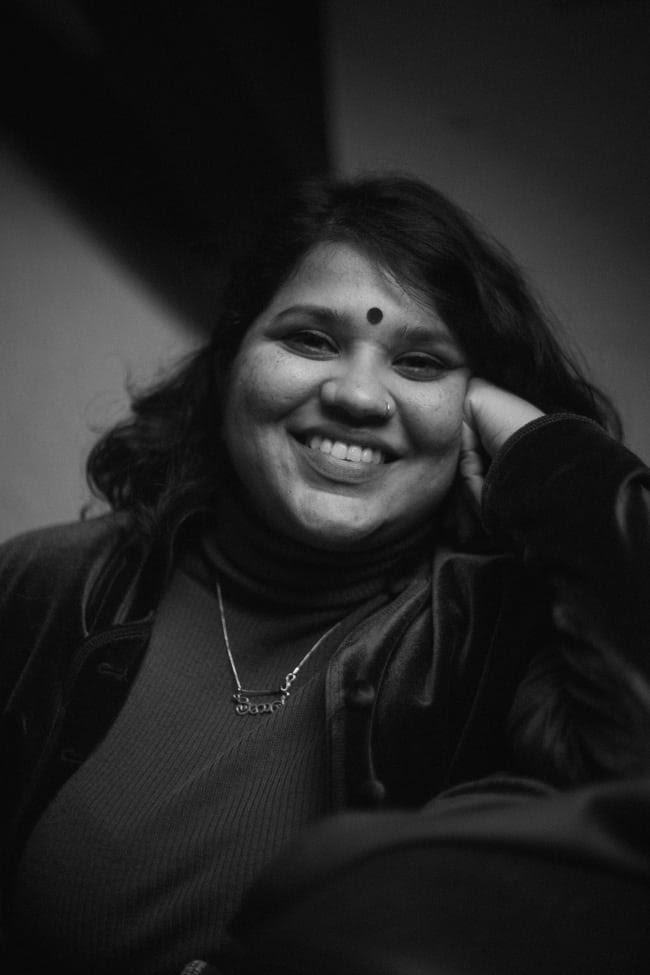From Kamburupitiya … Malkanthi’s Multi-Faceted Journey-by Fazli Sameer
Source:Thuppahis
hose Fuzzy Days, July 2025 … presented in fazli@substack.com with a slightly different title and the sub-title: “A trek through days of milk, honey, and roses”
In the small southern village of Kamburupitiya, nestled amidst the mist-covered hills of the southern coastal city of Matara, a determined teenage girl named Malkanthi prepared for a journey that would alter the course of her life. At sixteen, she was the pride of her village school, a bright, kind-hearted girl who had earned a scholarship to pursue her higher studies in Colombo.
As she boarded the dusty bus to the capital with her modest suitcase, her mother’s packed sambol rotis, and the blessings of her entire village, Malkanthi’s heart brimmed with both excitement and anxiety. Colombo was a world away from the paddy fields and temple bells of Kamburupitiya. Living in the hostel, among girls from all parts of the island, Malkanthi adjusted slowly. Her rural accent, simple clothes, and shyness initially drew amused glances. But her intelligence and humility soon won her friends and the respect of teachers.
After acing her A-Levels, a life-changing opportunity arrived. Malkanthi was awarded a full scholarship to Jawaharlal Nehru University (JNU) in Delhi, to pursue a degree in Nutrition. With her parents’ teary blessings, she left Sri Lanka once again, this time to the bustling, chaotic, and dazzling world of India.
At JNU, Malkanthi thrived. The campus was alive with ideas, activism, and students from across South Asia. It was here that she met Raj, a charismatic medical student from Mumbai, also on a scholarship. Their first conversation was over shared chai and a long night of library reading. Soon, study sessions turned into moonlit walks through the sprawling campus, and their connection deepened.
Raj made her laugh, made her feel understood in a foreign land. He dreamed of returning to India to serve in rural clinics. Malkanthi spoke of her village and the malnourished children she hoped to help. In the rhythm of shared dreams, they fell in love. Before graduating, they promised to reunite after their careers had taken root.
Malkanthi returned home to Sri Lanka, taking up a position with an NGO in Colombo, working on early childhood nutrition. Her career blossomed, she travelled across the island, designing programs for undernourished children in war-torn and rural regions. Raj, meanwhile, secured a prestigious position in Riyadh, Saudi Arabia, working in a national hospital. Distance grew. His messages grew shorter, infrequent. Calls became rare. The promise faded like the evening stars.
Amidst this quiet loneliness, Zulfickar, Malkanthi’s closest friend from JNU and now a colleague in Colombo, remained a constant companion. A Muslim girl from Dematagoda, Zulfickar was the daughter of a slain police officer. She lived with her widowed mother Fathima and younger sister Rizna, in a humble but loving home. Zulfickar was spirited, full of laughter and warmth, and her friendship grounded Malkanthi through difficult days.
One day, Zulfickar introduced Malkanthi to Hassan, a witty, soft-spoken Moor boy from Colombo. She had met him through a library program sponsored by the USIS. But as fate would have it, it wasn’t Zulfickar whom Hassan found himself drawn to, it was Malkanthi. Despite her mental protests and guilt, Malkanthi found herself slowly falling for him. His presence comforted her in ways Raj no longer could. A relationship blossomed, tender and real, built not on promises but on shared time and trust.
As the years passed, life continued to shift. Zulfickar met Lalith, a gentle Sinhala man from Kurunegala, working with another NGO. Their interfaith relationship faced some resistance, but love prevailed. They married in a quiet ceremony, applied for Canadian PR, and soon emigrated to Toronto, where their daughter Reema was born.
But happiness was fleeting. A few years into their new life, Zulfickar was diagnosed with cervical cancer. Despite treatment, the disease advanced rapidly. Lalith stood by her through every painful step. Just before her passing, she made Malkanthi promise to always stay in touch with Reema.
With Zulfickar gone, and Hassan increasingly entangled in his own family obligations, Malkanthi made a hard choice. She applied for immigration to the United States, hoping for a new start. She was accepted and relocated to New Jersey, bidding farewell to a love that could not survive the distance and cultural divide.
In the US, she rebuilt her life once more. Working at a children’s hospital in Newark, she met Reggie, a Sinhala-American doctor several years older to her. Steady, thoughtful, and kind, Reggie brought calm into her life. They married in a modest ceremony. They never had children, but their marriage lasted nearly three decades, enduring illness, joy, migration, and the soft erosion of time. They moved to Connecticut, where life slowed down and peace settled in.
Meanwhile, Hassan, now a widower, migrated to Canada, where he made contact with Reema, Zulfickar’s daughter, now a vibrant young woman married to a Palestinian software engineer. Hassan felt a strange comfort being around her, a nostalgic tie to the woman he had once wanted to marry him.
One summer, while visiting friends in New Jersey, Hassan entered a mall and turned a corner, only to come face to face with Malkanthi. It had been over thirty years since their last meeting. Time melted away. Their eyes widened, and before words could form, they embraced, tightly, tearfully.
They talked for hours in the food court, of past loves, mutual friends, losses, and survival. Reggie had passed a year earlier. Hassan too had lost much. There was no room now for youthful promises or the complications of marriage. But in each other, they found familiarity, warmth, and the kind of unconditional companionship that doesn’t ask for labels.
They began seeing each other again, holidays, visits, long phone calls. They remained partners in the most human sense, without obligation, but with deep affection. When Lalith succumbed to COVID complications, Malkanthi mourned with Reema, and stood by her just as she had promised her mother years ago.
As Malkanthi and Hassan entered their twilight years, they knew life had never moved in a straight line. It twisted, broke, healed, and surprised. They had not ended up together when young, but perhaps, in this quieter phase of life, they had ended up with exactly the person who understood them best.
Together, they would sit under the warm light of Malkanthi’s porch in New Jersey, sipping tea, speaking of Matara and Colombo, of Raj, Reggie, and Zulfickar, of rivers crossed and hearts mended.
In the end, it was not one great love that defined Malkanthi’s life, but many small, meaningful relationships that stayed with her through every step of the journey.





















